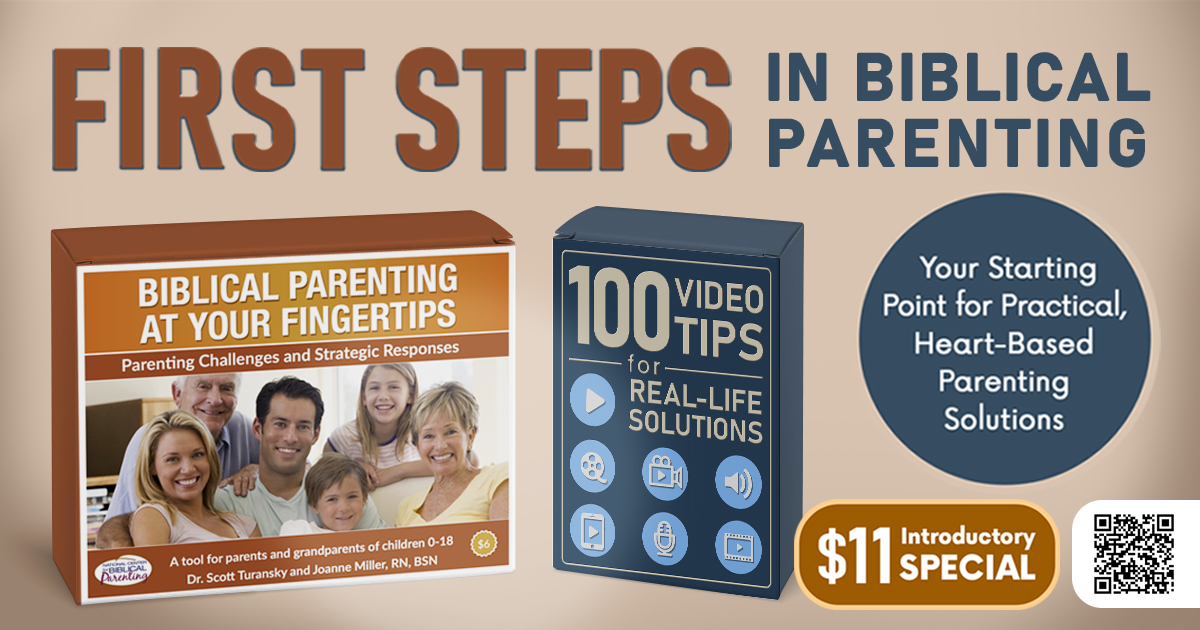Your children know your Action Point, Do you?

In the journey of parenting, it’s common to encounter moments where repetition and raised voices seem to be the only triggers for action from our children. Many parents confess, “I have to get angry to get a response.”
In this video Dr. Turansky shares more about your action point and how kids know what it is.
This method, often described as reaching an “action point,” reflects the moment when children finally recognize the seriousness of parental instructions. However, reliance on anger as an action point, though effective in the short term, can damage relationships and affect a child’s self-concept negatively. Let’s explore healthier alternatives to anger, encouraging a clear, loving, and scripturally aligned approach to enforcing discipline.
The Problem with Anger
Anger, while a natural human emotion, can be particularly destructive in the context of parenting. It might quiet a noisy room or hustle children out the door, but it also carries a damaging effect. Ephesians 4:26 cautions us, “In your anger do not sin”: Do not let the sun go down while you are still angry.”
This implies managing our anger in a way that avoids sin—through self-control and gentle communication. When anger defines our action points, it might communicate harshness or meanness, distancing us from our children rather than drawing them closer.
Defining New Action Points
Developing new action points involves setting clear, consistent cues that communicate the necessity of immediate action without escalating to anger. A more effective action point can be as simple as using specific word cues that signal the urgency and expectation of a response.
For instance, starting a directive with the child’s name and a clear instruction can engage a child’s attention and understanding of the expectation. For example, “Sarah, you need to clean up now,” emphasizes that this is not a suggestion but a requirement.
Using biblical principles, we know that direct and gentle communication is key. Colossians 3:21 warns, “Fathers, do not embitter your children, or they will become discouraged.” Our goal is to encourage obedience through understanding and respect, not fear or resentment.
Practical Steps to Implement New Action Points
- Clarity in Communication: Make your instructions clear and concise. Avoid vague statements that leave room for misinterpretation. For example, instead of saying, “Can you clean your room?” which sounds optional, be direct: “Billy, you need to clean your room now.”
- Consistency is Key: Consistency helps children understand the serious tone of an action point without confusion. If the rule is that homework starts at 4 PM, enforce this rule consistently.
- Immediate Consequences: Establish understood consequences for not following through with instructions. If a child fails to act after a clear, calm warning, follow through with a consequence that’s been pre-established and understood by all parties involved.
- Practice and Reinforce: Discuss these new action points during a calm moment with your children. Explain why these changes are necessary and how they will be implemented. Practice them together to ensure understanding.
Balancing Discipline with Grace
While it’s important to have clear action points for discipline, balancing these moments with grace is crucial. Ephesians 6:4 instructs, “Fathers, do not exasperate your children; instead, bring them up in the training and instruction of the Lord.” This verse reminds us to lead with a spirit of gentleness, aiming to nurture and guide rather than to control or instill fear.
Getting Personal
Reflect on your current parenting strategies: How often do you find yourself using anger as an action point? Consider the new techniques discussed here and think about how you might implement them in your daily interactions with your children.
Would you like to share your experiences or struggles with setting effective action points in your family? Leave a comment below to explore these strategies further.
Dr. Turansky has created a low-cost, high-value product to introduce you to Biblical Parenting. 100 four-minute videos and a Biblical Parenting Cheat Sheet for just $11. Learn more here:











Leave a Reply
Want to join the discussion?Feel free to contribute!